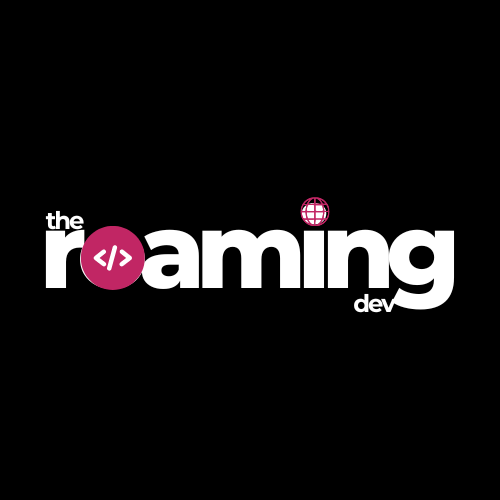The emergence of AI is transforming coding in ways that we haven’t seen before.
What was then an activity entirely dependent on human input and creativity is now being enhanced by a plethora of AI tools. In some cases, AI for software development has automated the whole coding thing.
This shift brings along lots of challenges and changes in the role of software developers. In some ways, it also opens up opportunities for engineers to adapt to the changing technology or rethink their roles.
Many coders already use AI to design and develop their software more efficiently. And this is not limited to GitHub Copilot alone.
There are several IDEs (integrated developer environments) that harness AI to automate coding.
You can also ask AI about code or to give you suggestions on how to improve your project. By any means, this is a big shift.
In this article, we will explore how AI is reshaping software development. We will look at how AI improves workflows, code quality, collaboration, and drives innovation.
Evolving Role of Software Developer
As artificial intelligence becomes deeply integrated with how programmers write code, there is a need for more understanding of how developers can use AI to thrive in this new technological shift.
Several software development roles are increasingly shifting toward AI-assisted roles using AI for software development tools like Cursor and GitHub Copilot. These tools not only make coding more efficient, but they also save time for engineers.
This new technological shift can also enhance collaboration. But there are rising concerns about the possibility of job displacement. There is also a serious need for reskilling for software engineers.
What this means is that software developers need to invest in education that keeps them up to date on AI proficiency.
Impact of AI in Software Development
1. Code Generation
One of the obvious areas that AI stands out is code generation.
Lots of AI for software development tools can uncover potential issues in your code, deliver valuable insights, and even recommend enhancements.
This will relieve developers of unnecessary stress and leave them to concentrate on more important tasks.
2. Enhancement of Code Quality
Besides code generation, AI for software development tools can also help developers analyze errors and find bugs and vulnerabilities in their projects.
These capabilities of AI can significantly improve the quality and performance of the overall code, saving time for the organization.
Besides this, it will help in the early detection of issues before the code progresses to production.
3. Automation of Coding Tasks
AI enables the automation of monotonous and often tedious tasks such as code generation, code testing, migrations, and debugging.
What this means is that developers will have more time to deal with other aspects of software development, thus increasing overall productivity and innovation.
4. AI and DevSecOps: Strengthening Software Security
Cybersecurity is a growing concern in the tech space, and AI-driven security solutions can prevent impending cyber attacks.
AI in software security plays a crucial role in vulnerability detection, reinforcement of secure coding practices, and automation of threat analysis.
Some AI-driven security applications in software development include:
- AI-powered threat modeling for proactive security measures
- AI-driven bug detection and resolution
- AI in open-source software development to prevent dependency exploits
Organizations using AI-driven DevSecOps practices significantly minimize data breaches and cyber risks.
5. AI in Software Maintenance and Refactoring
One of the most important aspects of software development is software maintenance. Unfortunately, this task is usually time-consuming.
The good news is that AI for software development can play a crucial role in optimizing legacy codes, ensuring software remains maintainable and scalable over time, and refactoring inefficient structures.
Notable AI-based code refactoring tools like IntelliCode and Refact.ai can analyze outdated codebases and recommend an optimized structure with enhanced performance and maintainability.
These AI tools come in handy when you want to modernize your software infrastructure without the involvement of expensive manual intervention.
6. Testing and Debugging
Typically, software testing is a laborious process that requires massive human effort to pinpoint and fix bugs.
But the good news is that AI can significantly improve this aspect of software development by identifying anomalies, automating test case generation, and predicting potential issues before they arise.
AI for software development tools like Applitools, Test.ai, and Diffblue analyzes different aspects of software and detects weaknesses more efficiently than human effort.
These tools utilize pattern recognition and bug detection to uncover issues that may go unnoticed if you were to use conventional testing processes.
Real Use Cases of AI in Coding
The market for AI coding assistants is going through exciting times, experiencing a significant boom. This shift has unlocked new opportunities and given rise to a new wave of companies.
Some of these startups are attracting huge funding even in their early stages.
For instance, Magic secured a $320 funding round with participants including prominent entrepreneurs like Eric Schmidt, Google’s CapitalG, and Sequoia.
Likewise, Paris-based Poolside announced a $500 million funding round before it could even launch their product.
These emerging platforms demonstrate the increasing market interest for AI coding programs.
Big techs like Amazon have shown their interest in generative AI for coding, representing a great shift in how software is developed going into the future.
Their generative AI assistant, Amazon Developer, has streamlined software upgrades, saving Amazon an equivalent of 4,500 developer-years of work.
In terms of financial gain, it has saved the company about $260 million in annualized efficiency gains.
Other real-world examples are Devin and Tabnine. These two also represent an expanding role of AI in coding and software development.
Tabnine, one of the pioneers in AI-assisted coding, now serves over a million users.
X Devin, recently branded as an AI software developer, comes with full-stack capabilities and can partner with users to execute complex engineering tasks other than just coding.
Advantages of AI in Software Development
Implementing AI in software development will make your organization more efficient and take it to the next level. Here are some key advantages of using AI in software development:
- Enhanced Accuracy: AI tools analyze code with a high degree of precision. So, it can detect issues in real time while eliminating human errors.
- Increased Productivity: Automation of repetitive tasks such as software testing, writing codes, and debugging saves a lot of human hours. With such tasks out of their way, developers will have more time to handle creative things and solve complex problems.
- Cost Efficiency: AI saves businesses money by reducing dependency on repetitive manual processes. It automates workflows, which in turn reduces the enormous requirements of development operations for redundant tasks while speeding the development process. All these will lead to significant cost savings.
- Faster Time-to-Market: AI speeds every aspect of software development from ideas to deployment. Through automation of coding, testing, and debugging, companies are able to release their products to the market on time.
- Improved Scalability: AI for software development enables teams to take on more complex projects. It also ensures optimal allocation and use of resources and streamlined workflows, empowering them to expand to new markets faster.
Limitations of Using AI for Software Development
Advancements in AI for software development tools are undeniably exciting. But we should remember that the industry is still in its nascent stage.
Moreover, many upcoming AI coding tools are experiencing teething challenges.
Practical experiences and industry observations with AI coding assistants show that there are still gaps to bridge before LLMs become viable for coding.
One of the concerns with using AI is the reliability and quality of code.
Experts believe that AI-generated code can introduce unwanted bugs and errors, forcing developers to conduct proper quality assistance on the code.
Apart from this, AI models depend largely on the quality of the training data they get.
So, biased and outdated data can cause the generation of code based on obsolete libraries or outdated practices.
AI-generated code can also suffer from complexity and maintainability issues. These issues lead to the production of unnecessarily complex code that complicates future debugging efforts.
Additionally, there are security concerns when integrating AI-generated code into your projects. It is a fact that AI may not account for the latest security vulnerabilities.
So, there is a likelihood of introducing exploitable vulnerabilities into the system.
Licensing is also a concern because AI-generated code might inadvertently incorporate someone else’s code, raising issues around IP and privacy.
The Future of AI in Software Development
The impact of AI on coding and programming jobs is undeniable, but it is unlikely to replace these jobs due to some reasons and limitations explained above.
However, the integration of AI into software development will most likely create new opportunities that require upskilling in AI.
Such opportunities will also lead to stronger partnerships between humans and machines. As you know, programming involves more than just inserting pieces of code here and there.
It requires creativity and effective collaboration among stakeholders to resolve complex problems and deliver solutions that meet the needs of users.
Final Thoughts
Fueled by the forces of AI, the realm of coding is rapidly evolving. The transformative power of AI-supported coding, utilizing machine learning and advanced AI algorithms, can augment the capabilities of developers.
This enhances accuracy, increases productivity, and leads to cost savings. Indeed, AI is changing the software development industry in many ways, making it more intelligent, quicker, and efficient.
The application of AI for software development is already witnessed in areas such as chatbots and digital assistance, code generation and assistance, automated testing and debugging, and DevOps automation.
Also Read:
- 8 Best AI Development Tools For developers in 2025
- Best AI for Writing: Top Tools for Content Creators in 2025.
- Top AI Tools for Software Development in 2025: Speed Up Your Process



